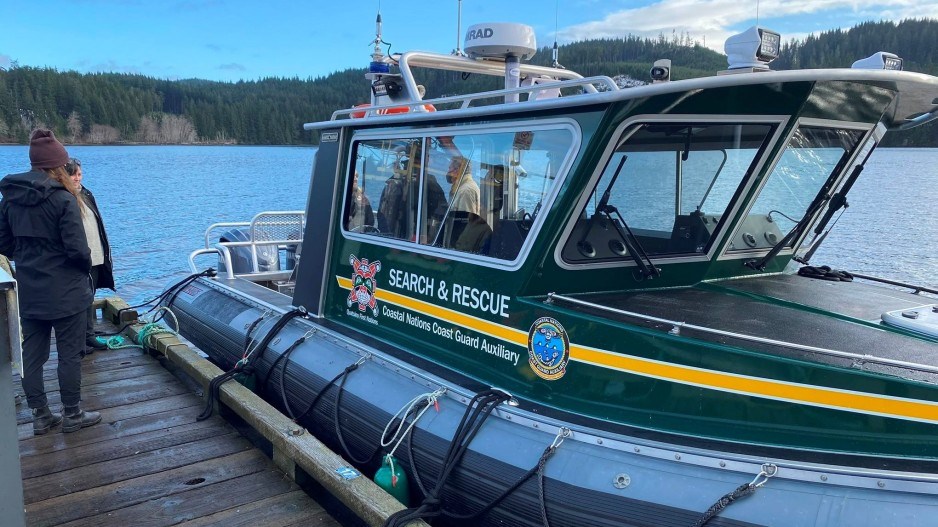Two B.C. coastal First Nations have received two new emergency response vessels as part of the Canadian Coast Guard’s Indigenous Community Boat Volunteer Pilot Program.
The Quatsino and Kitasoo Xai'xais First Nations have taken delivery of emergency response vessels as part of the Coastal Nations Coast Guard Auxiliary.
“Indigenous communities like Quatsino First Nation and Kitasoo Xai’xais Nation are often first on scene in a marine emergency,” federal Fisheries and Oceans Minister Joyce Murray said in a news release.
“Funding for these community response vessels is one way our government is helping making the coast of British Columbia safer. This fund will help increase the chance that someone involved in a marine incident will get home to their family.”
Under the federal government’s $1.5 billion Oceans Protection Plan, the Canadian Coast Guard’s Indigenous Community Boat Volunteer Pilot Program provides coastal indigenous communities with funding to buy boats that can respond to marine emergencies.
The Coastal Nations Coast Guard Auxiliary is Canada’s first indigenous Coast Guard auxiliary, with more than 50 members. To date, 35 coastal First Nations communities across Canada have received more than $10 million in funding.
The Quatsino First Nation’s new response vessel, the Quatsino Spirit, is a 27-foot vessel with a cruising speed of 44.5 knots. The Quatsino First Nation are participating in search and rescue training exercises with the Canadian Coast Guard.
The Kitasoo Xai'xais Nation’s new response vessel, the Ksm Wutsi'in (Mousewoman), is a 30-foot vessel with a cruising speed of 25 knots.
“As coastal Indigenous people, Kitasoo Xai'xais Nation have been responding to mariners in distress for thousands of years, whether those in need of rescue come from our Nations, or are guests to our waters,” said Doug Fraser, board director of the Kitasoo Xai'xais First Nations' Coastal Nations Coast Guard Auxiliary.
“Having a dedicated search and rescue vessel will potentially help rescue more people and protect the lives of rescuers.”
The $1.5 billion Oceans Protection Plan was announced in November 2016, just a few weeks before federal cabinet approved the expansion of the Trans Mountain Pipeline. The plan was in no small part to address concerns over the increased risk of a marine oil spill from an expanded pipeline and increased oil tanker traffic.




